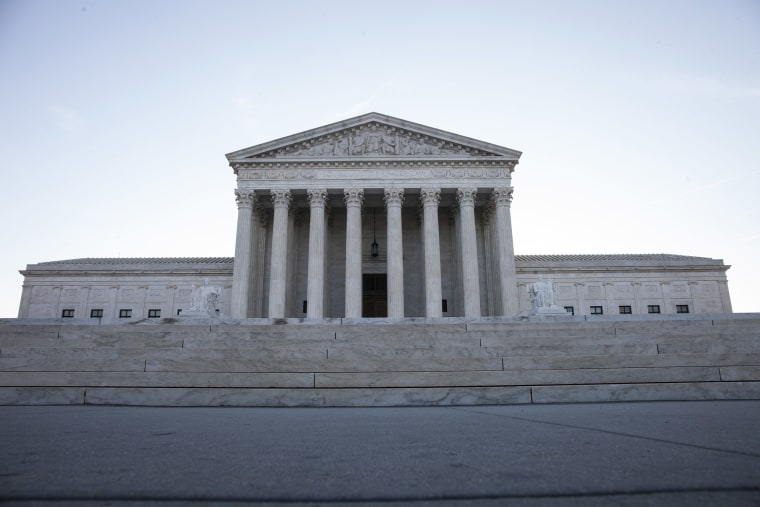The U.S. Supreme Court on Tuesday ruled in favor of houses of worship in Colorado and New Jersey that opposed capacity limits on worship services.
In the Colorado case, the court ruled 6-3 to send the lawsuit, brought by the High Plains Harvest Church, back to the lower courts, where the church had lost.
Justices Stephen Breyer, Sonia Sotomayor and Elena Kagan dissented, saying the case was moot because Colorado had already lifted all the limits. “There is no reason to think Colorado will reverse course — and so no reason to think Harvest Church will again face capacity limits,” the dissent said.
The 150-seat church filed suit in May, arguing Colorado Gov. Jared Polis' order capping attendance to 50 people was too restrictive. Lower court judges had refused to sign off on an order that would have made the church exempt from those restrictions.
The high court said the lower court judges should review the case in light of its ruling in a similar case involving New York last month.
In a second ruling Tuesday, the Supreme Court issued a ruling limiting New Jersey's application of Covid-19 restrictions that apply to religious settings, granting an injunction sought by two religious institutions — a church in North Caldwell and a synagogue in Lakewood.
The church and synagogue asked for an injunction allowing them “to host indoor, in-person religious worship for their respective congregations on the same terms and conditions allowed for comparable secular activities; that is, either the 100% of capacity afforded ‘essential’ non-retail businesses or, alternatively, the 50% of capacity allowed for 'essential' retail businesses, with the same health and safety protocols and exemptions applicable to comparable secular activities.”
In the New York case, the Supreme Court issued an injunction blocking Gov. Andrew Cuomo from enforcing 10- and 25-person occupancy limits on religious institutions.
The state had told the court there was no need to act because the restrictions, which were adopted as a way to try to prevent the spread of the coronavirus, had recently been dialed back.
In a strongly worded dissent, Sotomayor warned the ruling could have dangerous consequences.
“Justices of this court play a deadly game in second guessing the expert judgment of health officials about the environments in which a contagious virus, now infecting a million Americans each week, spreads most easily,” she wrote, predicting the decision “will only exacerbate the nation’s suffering.”
The court had rejected challenges to similar measures in California and Nevada in 5-4 rulings earlier this year, before the death of liberal Justice Ruth Bader Ginsburg and the addition of the conservative Justice Amy Coney Barrett to the bench.
In pointed public remarks to the conservative Federalist Society last month before the New York ruling, Justice Samuel Alito said the restrictions in Nevada and California had "blatantly discriminated against houses of worship" and he warned that "religious liberty is in danger of becoming a second-class right."


